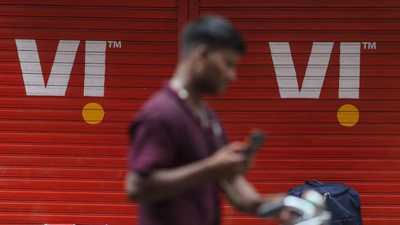Fake colleges in Canada: How scammers target international students and how to stay safe

Every year, Canada welcomes hundreds of thousands of international students who see the country as a gateway to quality education and global opportunity. Yet, alongside genuine institutions, a shadow network of fake colleges and fraudulent agents has emerged—taking advantage of students’ aspirations and limited awareness of Canada’s education system.According to Immigration, Refugees and Citizenship Canada (IRCC), more than 10,000 fake or suspicious letters of acceptance (LOAs) were flagged in 2024 during a comprehensive review of student applications. As reported by The Times of India in May 2024, nearly 20,000 Indian students who entered Canada in recent years did not enrol at the institutions listed on their study permits—a discrepancy linked to deceptive middlemen and non-compliant colleges.
What “fake college” means in Canada
In Canada, a “fake college” doesn’t always mean a completely imaginary school. Often, it refers to an institution that is not a Designated Learning Institution (DLI)—the official status required by IRCC to host international students—or one that issues fraudulent or invalid admission letters. In other cases, the institution exists legally but operates as a “visa mill,” enrolling international students with the main aim of enabling work permits rather than providing real education. As noted by University Affairs, some of these operations are “sophisticated networks of fake agents, imitation websites, fictitious bursaries, and even universities invented out of thin air.” The appearance of legitimacy—through logos, professional websites, and agent partnerships—often conceals an absence of proper accreditation or academic substance.
Recent investigations and cases
The scale of the problem became evident in 2023 when IRCC and the Canada Border Services Agency (CBSA) launched a joint task force after uncovering hundreds of fraudulent LOAs linked to unlicensed agents. The Government of Canada’s official statement on the “Genuine Students Impacted by Fraud Task Force” confirmed that many students were victims of organized deception, not deliberate offenders. By early 2024, IRCC had identified over 10,000 questionable admission letters, as reported by The Times of India. Around the same time, CBC News and Global News reported that Ottawa was tightening document verification and requiring institutions to confirm LOAs directly with IRCC before visa approval. Several individuals in India and Canada have since been charged in connection with fake admission schemes.
How the scams work
According to University Affairs, fraudsters often pose as “immigration consultants” who promise guaranteed admissions and quick visa approvals. Students pay substantial fees and receive forged LOAs using real DLI names and logos. When they arrive in Canada, some discover their school’s address leads to a small office or no building at all. Others are told their “programme is full” and are redirected to unrelated institutions. One student quoted by The Times of India said he realised he’d been scammed only when “weeks passed with no classes or contact from the college.” In many cases, students end up working illegally or risk deportation for unknowingly holding fraudulent documents.Verified and flagged institutionsWhile Canada does not publish a formal blacklist of fake colleges, certain institutions have been investigated or de-designated. CIC News reported in April 2023 that dozens of students in Ontario faced deportation after an Indian agent issued forged LOAs from several private colleges. The IRCC Genuine Students Task Force later confirmed that multiple DLIs had been scrutinized for poor oversight of international admissions. Because such investigations are ongoing, students are urged to rely only on official government registries—the IRCC’s DLI list and provincial regulatory databases—when confirming a college’s legitimacy.How to verify a Canadian college1. Check the DLI list: Go to the official IRCC Designated Learning Institution List and verify that your college’s DLI number matches what appears on your LOA.2. Confirm provincial registration: Use your province’s public college registry (for example, Ontario’s Career Colleges Ontario Public Register) to confirm the school’s licence.3. Contact the institution directly: Call or email the college using the contact information listed on the government site, not through your agent.4. Inspect your LOA: It should include your name, programme, start date, DLI number, and a verifiable signature.5. Check your agent’s credentials: Confirm your immigration consultant is licensed by the College of Immigration and Citizenship Consultants (CICC).6. Search for credible news: Look up the institution’s name along with “complaints” or “scam” on sites like CBC News or Global News.Designated learning institutions listWarning signs to watch for• Promises of “guaranteed admission” or “visa in 15 days.”• Requests for full tuition payment before confirmation of acceptance.• No physical campus or unverifiable address.• Communication only via WhatsApp or Gmail.• Unrealistic claims such as “work full time while studying” or “earn back your tuition easily.”If you’ve been scammedIf you suspect your letter or school is fake, report it immediately through IRCC’s official Report Fraud or Abuse portal. Victims already in Canada should contact a licensed immigration lawyer. According to an IRCC briefing to Parliament in 2023, genuinely misled students may be eligible for temporary resident permits while authorities investigate. Keep all emails, payment receipts, and communications as proof of good faith.Staying Vigilant: Protecting Your Dream Before It Becomes a NightmareAs CBC News noted in a 2024 investigation, Canada’s international education sector has attracted “a parallel market of deception.” Yet the best protection is vigilance. Before paying any money or applying for a visa, verify every college, every agent, and every document through official channels. A few minutes of research can save years of stress—and keep your Canadian dream alive.






